As part of TXF's side-brand Stages for Change, which champions diversity and inclusivity in the industry, we invite the amazing women that make up the commodities industry to a networking breakfast.
As we all return for day 2, TXF’s Aife Howse welcomes delegates back with some opening remarks.

This session will require the audience to power up slido and get voting, as we conduct an audience response survey exploring some of the biggest trends and headwinds currently sending shockwaves through the industry.


Supply Chain Resilience has become integral to national security strategies around the world in the wake of Russia’s invasion of Ukraine. However, the “just in case” supply model has serious flaws when it comes to rare earths elements and critical metals in particular. As was predicted by economist Rebecca Harding in this keynote last year, the last 12 months have been dominated by the importance of these groups of commodities. As we try to accelerate towards energy transition, greater digitalisation and more secure supply chains, and of course provide more arms to Ukraine, our dependency on China becomes ever more evident. Dr Harding will review the patterns and trends over the past year and look to the challenges and opportunities for commodity trade in the next 12 months.

The insurance market follows its clients, and in this sense, is a great indicator of the wider commodities landscape. This session comprises insurers and brokers to discuss - How has market appetite shifted from this time last year? - There has been a drawback from softs in the insurance space. Why is this, and what can agri traders do to regain support? - Should brokers be adapting their approaches to bring new clients and diversity to insurer’s portfolios?




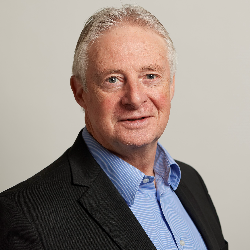
In this session, we hear from producers across the metals, energy, and agri spaces on how they are tackling the top headwinds and opportunities of 2023 - From increased operational costs to rising cost of debt, how are producers aiding their cash flows? - How are producers innovating when it comes to digitalization, and is the producer sector catching up to the rest of the commodities industry in this respect? - How is the greater focus on the circular supply chain affecting producer’s business and operations?

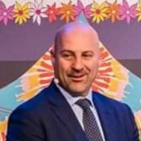

CEO of PANGEA-RISK, Dr. Robert Besseling, will present on the biggest opportunities and risks within the African commodities landscape, in particular: - What actual risks does commodity trade in Africa face? - Which African countries have a strong commodity outlook? - Where are the emerging opportunities in commodity trade?

Stages for Change champions women and other under-represented groups in finance. In this session, we hear from some of the brilliant women that make up the commodities space, to discuss what can be done to make the industry a more diverse and inclusive place from junior to director level. - Why did our panellists choose commodity finance? If it was not a choice as such, how can we encourage more women and underrepresented groups to choose this industry? - WISTA’s survey in gender equality in the commodities and maritime industries shows there is a difference in sentiment between men and women when it comes to equality in the workplace. How can we begin to lessen this gap? - What initiatives have worked in our panellists’ respective organisations? What more can be done?



TXF's Editor in Chief Jonathan Bell shares some closing remarks

Collect your badge from the registration desk and grab a coffee before the first session
TXF’s editor in chief Jonathan Bell welcomes delegates to Global Commodity and Sustainable Natural Resources Finance 2023 with some opening remarks.

Kicking off day one, specialist commodities economist Daniela Corsini will walk delegates through her outlook on the reopening of China, and the wider implications this has on the commodities and natural resources landscape. Following this, the stage will open to discussion from a panel of commodities trade experts.



This year’s global traders panel will compare and contrast trader strategies across four key areas: sustainability, reaction to recession and inflation, China reopening, and the energy crisis. - Which traders have taken the plunge into the carbon credit market? Those who haven’t, what is holding you back? - Inflation can be a positive for traders, but the world is in danger of stagflation. What might this mean for the traders? - Whilst the energy crisis is directly affecting energy trade, it is also having an impact throughout supply chains. How are trader’s accommodating high prices?



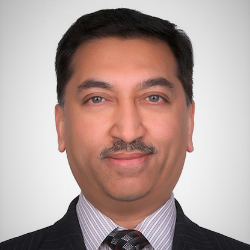

This session puts commodity trade finance and natural resources global heads to the test, with an opening quick-fire round, a more in-depth discussion on top trends from inflation to ESG strategies, and a gameshow-style Family Fortunes finisher! - How drastically is inflation affecting cost of funding and the wider lending landscape? - How have bank portfolios changed over the past year, in terms of both sectors and jurisdictions, and what changes are expected in the coming year? - To what extent are banks innovating when it comes to ESG strategies and sustainable finance?






Demand for risk management solutions is on the rise, as market practitioners look for efficient ways to mitigate the range of risks they face. This session both spotlights the key risks in the market today, while also looking at ways to mitigate them, and will cover: - The take up of new tech solutions and AI-powered innovation - Advances in collateral management that focus not just on the whereabouts of goods, but also their conditions (e.g. temperature monitoring and humidity levels).



Split into two halves, the first part of this session will see ArrowResource’s Alexander Peters and Ammonia Energy Association's Hans Vrijenhoef each give a 10 minute talk on battery metals for net zero, and ammonia as a low carbon energy source, respectively. Part 2 will comprise moderated Q&A discussion, during which the audience will also have their chance to pose their questions to the presenters.



Measuring, controlling, and reducing emissions outside of a company’s own emissions is a challenge. But scope 3 accounts for around 70% of a company’s overall emissions, making it the most important area to tackle. - What are the main issues when it comes to the measuring of scope 3 emissions? - Is the market seeing a big divide when it comes to the top players and SMEs when it comes to progression around scope 3? - What third party platforms or solutions are out there to help a company progress in this space?




This session deep dives into China Molybdenum Brazil’s $600 million pre-export financing for niobium - one of the largest niobium mining/metal financings to date, and certainly the largest niobium structured commodity financing ever.
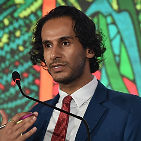
Russia’s war on Ukraine arguably caused the biggest disruption to food security in recent history. Just over a year on from the start of the supply issues, how have agri production and trade flows evolved to increase security? - Which regions have been affected the most? - What kinds of measures can help to protect against the unpredictable? - What role do supply chain managers play in this space?


With upcoming sanctions to take Russia’s metals supply out of the global mix, global demand for Africa's mining resources is soaring whilst investment is deficient. This session is a deep dive into the opportunities and headwinds in the region, from securing funding and investment to catching up with Europe’s ESG progress. - What are some of the financing solutions gaining traction in de-risking the region? - Africa’s metals and mining industry is increasingly adapting to address ESG, but global standards are becoming increasingly strict. How equipped is the continent when it comes to implementing competitive ESG strategies?



Social sustainability has been gaining traction over the past few years as corporate and bank strategies begin to tackle ESG with more intricacy. But is this just buzz or are tangible improvements being made? - What issues are faced when it comes to measuring and improving social sustainability credentials? - Which sectors and regions are leading in this space, and which are lagging? - What key progress has already been made, and how could this be applied to the wider industry?
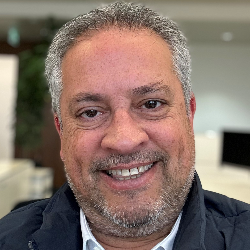



SMEs are facing similar issues across all sectors; interest rates are up, profit margins are tight, and bank appetite is low. The ‘flight to quality’ has resulted in capital migration, concentrated amongst the titan traders. This session focuses on the seemingly impossible job that SMEs are facing across the agri, energy, and shipping and bunkering spaces. - Ultimately, alternative financing should be a lifeline for SMEs in this economic climate, but are funds catering to this market effectively enough? - What role are the various owners of capital playing in connecting SMEs with financing? - How can SMEs improve on corporate governance and risk management to gain more trust and support from lenders?


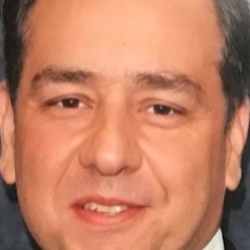

To round off the first day of content, TXF's editor in chief Jonathan Bell gives closing remarks.

“Leaving so soon? I wouldn't hear of it! Why, our little party's just beginning!”
For those who have secured a seat to our industry awards dinner, join us for some pre-dinner drinks and canapes, collect your badge and find out where you're sitting, whilst enjoying some wonderful entertainment, provided by our Cultural Sponsor: Sonus Nobilis
Back by popular demand, the TXF industry awards dinner is returning to Amsterdam! For those that have secured a seat at our industry awards dinner, enjoy a sit down three course meal and celebrate the 10 best deals of the year from 2022 at the 5* Grand Krasnapolsky.
For those who have secured a seat to our industry awards dinner, join us for some pre-dinner drinks and canapes, collect your badge and find out where you're sitting, whilst enjoying some wonderful entertainment, provided by our Cultural Sponsor: Sonus Nobilis
Back by popular demand, the TXF industry awards dinner is returning to Amsterdam! For those that have secured a seat at our industry awards dinner, enjoy a sit down three course meal and celebrate the 10 best deals of the year from 2022 at the 5* Grand Krasnapolsky.
Collect your badge from the registration desk and grab a coffee before the first session
TXF’s editor in chief Jonathan Bell welcomes delegates to Global Commodity and Sustainable Natural Resources Finance 2023 with some opening remarks.

Kicking off day one, specialist commodities economist Daniela Corsini will walk delegates through her outlook on the reopening of China, and the wider implications this has on the commodities and natural resources landscape. Following this, the stage will open to discussion from a panel of commodities trade experts.



This year’s global traders panel will compare and contrast trader strategies across four key areas: sustainability, reaction to recession and inflation, China reopening, and the energy crisis. - Which traders have taken the plunge into the carbon credit market? Those who haven’t, what is holding you back? - Inflation can be a positive for traders, but the world is in danger of stagflation. What might this mean for the traders? - Whilst the energy crisis is directly affecting energy trade, it is also having an impact throughout supply chains. How are trader’s accommodating high prices?





This session puts commodity trade finance and natural resources global heads to the test, with an opening quick-fire round, a more in-depth discussion on top trends from inflation to ESG strategies, and a gameshow-style Family Fortunes finisher! - How drastically is inflation affecting cost of funding and the wider lending landscape? - How have bank portfolios changed over the past year, in terms of both sectors and jurisdictions, and what changes are expected in the coming year? - To what extent are banks innovating when it comes to ESG strategies and sustainable finance?






Demand for risk management solutions is on the rise, as market practitioners look for efficient ways to mitigate the range of risks they face. This session both spotlights the key risks in the market today, while also looking at ways to mitigate them, and will cover: - The take up of new tech solutions and AI-powered innovation - Advances in collateral management that focus not just on the whereabouts of goods, but also their conditions (e.g. temperature monitoring and humidity levels).



Split into two halves, the first part of this session will see ArrowResource’s Alexander Peters and Ammonia Energy Association's Hans Vrijenhoef each give a 10 minute talk on battery metals for net zero, and ammonia as a low carbon energy source, respectively. Part 2 will comprise moderated Q&A discussion, during which the audience will also have their chance to pose their questions to the presenters.



Measuring, controlling, and reducing emissions outside of a company’s own emissions is a challenge. But scope 3 accounts for around 70% of a company’s overall emissions, making it the most important area to tackle. - What are the main issues when it comes to the measuring of scope 3 emissions? - Is the market seeing a big divide when it comes to the top players and SMEs when it comes to progression around scope 3? - What third party platforms or solutions are out there to help a company progress in this space?




This session deep dives into China Molybdenum Brazil’s $600 million pre-export financing for niobium - one of the largest niobium mining/metal financings to date, and certainly the largest niobium structured commodity financing ever.

Russia’s war on Ukraine arguably caused the biggest disruption to food security in recent history. Just over a year on from the start of the supply issues, how have agri production and trade flows evolved to increase security? - Which regions have been affected the most? - What kinds of measures can help to protect against the unpredictable? - What role do supply chain managers play in this space?


With upcoming sanctions to take Russia’s metals supply out of the global mix, global demand for Africa's mining resources is soaring whilst investment is deficient. This session is a deep dive into the opportunities and headwinds in the region, from securing funding and investment to catching up with Europe’s ESG progress. - What are some of the financing solutions gaining traction in de-risking the region? - Africa’s metals and mining industry is increasingly adapting to address ESG, but global standards are becoming increasingly strict. How equipped is the continent when it comes to implementing competitive ESG strategies?



Social sustainability has been gaining traction over the past few years as corporate and bank strategies begin to tackle ESG with more intricacy. But is this just buzz or are tangible improvements being made? - What issues are faced when it comes to measuring and improving social sustainability credentials? - Which sectors and regions are leading in this space, and which are lagging? - What key progress has already been made, and how could this be applied to the wider industry?




SMEs are facing similar issues across all sectors; interest rates are up, profit margins are tight, and bank appetite is low. The ‘flight to quality’ has resulted in capital migration, concentrated amongst the titan traders. This session focuses on the seemingly impossible job that SMEs are facing across the agri, energy, and shipping and bunkering spaces. - Ultimately, alternative financing should be a lifeline for SMEs in this economic climate, but are funds catering to this market effectively enough? - What role are the various owners of capital playing in connecting SMEs with financing? - How can SMEs improve on corporate governance and risk management to gain more trust and support from lenders?




To round off the first day of content, TXF's editor in chief Jonathan Bell gives closing remarks.

“Leaving so soon? I wouldn't hear of it! Why, our little party's just beginning!”
As part of TXF's side-brand Stages for Change, which champions diversity and inclusivity in the industry, we invite the amazing women that make up the commodities industry to a networking breakfast.
As we all return for day 2, TXF’s Aife Howse welcomes delegates back with some opening remarks.

This session will require the audience to power up slido and get voting, as we conduct an audience response survey exploring some of the biggest trends and headwinds currently sending shockwaves through the industry.


Supply Chain Resilience has become integral to national security strategies around the world in the wake of Russia’s invasion of Ukraine. However, the “just in case” supply model has serious flaws when it comes to rare earths elements and critical metals in particular. As was predicted by economist Rebecca Harding in this keynote last year, the last 12 months have been dominated by the importance of these groups of commodities. As we try to accelerate towards energy transition, greater digitalisation and more secure supply chains, and of course provide more arms to Ukraine, our dependency on China becomes ever more evident. Dr Harding will review the patterns and trends over the past year and look to the challenges and opportunities for commodity trade in the next 12 months.

The insurance market follows its clients, and in this sense, is a great indicator of the wider commodities landscape. This session comprises insurers and brokers to discuss - How has market appetite shifted from this time last year? - There has been a drawback from softs in the insurance space. Why is this, and what can agri traders do to regain support? - Should brokers be adapting their approaches to bring new clients and diversity to insurer’s portfolios?





In this session, we hear from producers across the metals, energy, and agri spaces on how they are tackling the top headwinds and opportunities of 2023 - From increased operational costs to rising cost of debt, how are producers aiding their cash flows? - How are producers innovating when it comes to digitalization, and is the producer sector catching up to the rest of the commodities industry in this respect? - How is the greater focus on the circular supply chain affecting producer’s business and operations?



CEO of PANGEA-RISK, Dr. Robert Besseling, will present on the biggest opportunities and risks within the African commodities landscape, in particular: - What actual risks does commodity trade in Africa face? - Which African countries have a strong commodity outlook? - Where are the emerging opportunities in commodity trade?

Stages for Change champions women and other under-represented groups in finance. In this session, we hear from some of the brilliant women that make up the commodities space, to discuss what can be done to make the industry a more diverse and inclusive place from junior to director level. - Why did our panellists choose commodity finance? If it was not a choice as such, how can we encourage more women and underrepresented groups to choose this industry? - WISTA’s survey in gender equality in the commodities and maritime industries shows there is a difference in sentiment between men and women when it comes to equality in the workplace. How can we begin to lessen this gap? - What initiatives have worked in our panellists’ respective organisations? What more can be done?



TXF's Editor in Chief Jonathan Bell shares some closing remarks
